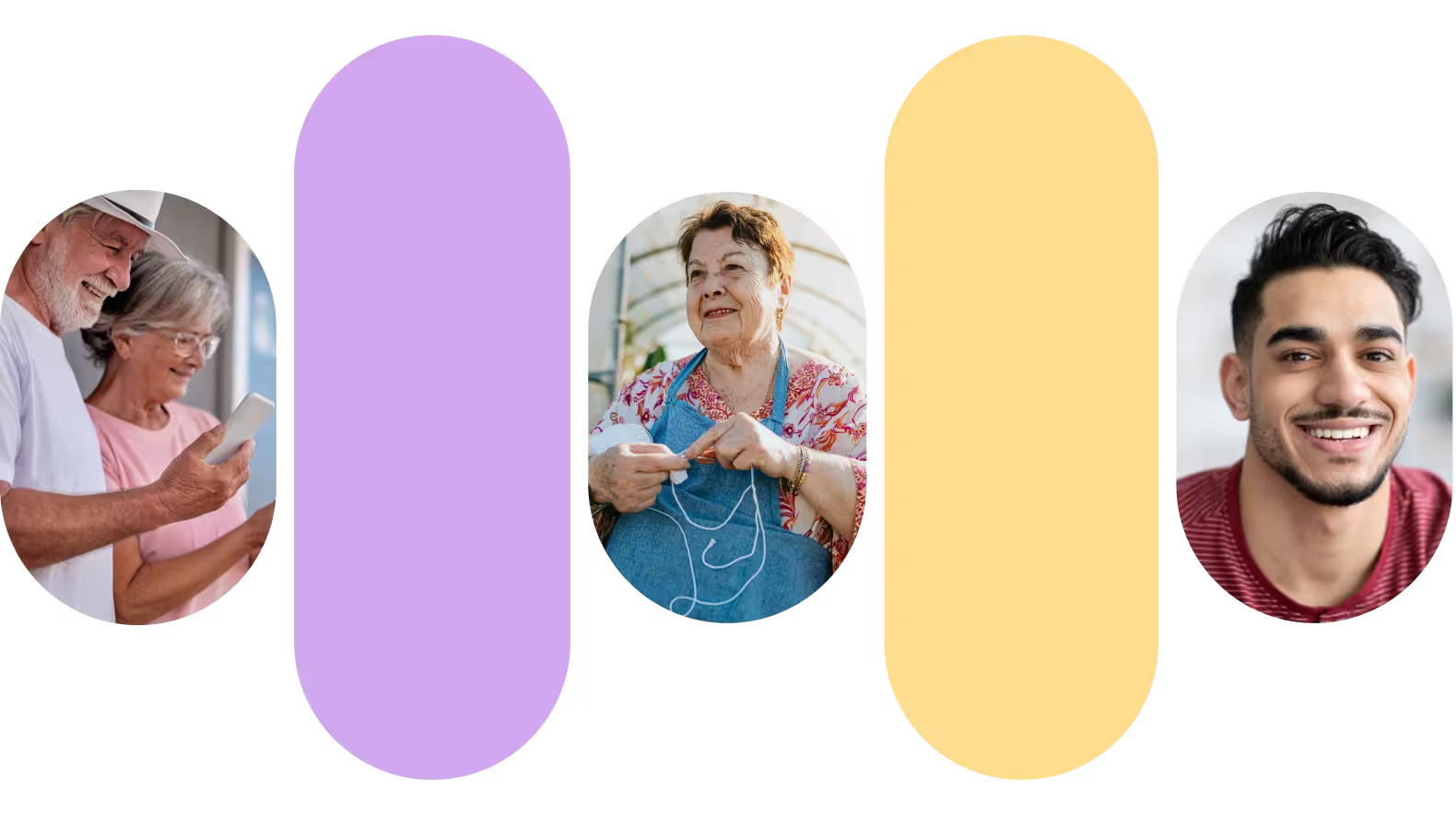Life With Hearing Aids
What changes to expect and how to prepare for life with hearing aids. Find out this and more in our insightful article about the effect hearing aids have on life.

For many with hearing loss, wearing hearing aids is a necessity to be able to communicate and access information around them. We acknowledge that wearing hearing aids is a major life adjustment. In this article, we will delve into the benefits of wearing them!
We are happy to share that there is increasing adoption of hearing aid devices and growing awareness regarding technologically advanced devices. Hearing aid companies are listening to those who live life with hearing aids.
One reason for the surging demand of hearing aids in the past five years is due to the growing geriatric population. Hearing loss late in life is becoming an increasingly common experience for many.
Effects Of Hearing Aids On Life
Hearing aids help the wearer avoid missing out on important moments in life. If he or she cannot hear what is being said, that person can’t be a part of the conversations. Feeling excluded from conversations and/or asking people to repeat themselves louder can be an extremely isolating part of the hearing loss experience.
Hearing aids can help individuals actively participate in life, whether this is at school, at home, or at work. Individuals can maintain their independence in various aspects of daily life.
Improved Communication and Social Interactions
Hearing aids amplify sounds and pick up on previously unheard sounds, making it easier for those living with hearing loss to communicate effectively with family, friends, and co-workers. Conversations become easier in both quiet environments and in noisy settings such as restaurants or social gatherings.
For those who experience hearing all sounds for the first time, they often find out that there may be “white noise”, such as hearing things running in the background or people around them talking. Normal hearing listeners can also hear these 'unwanted' sounds, but with time, our brains learn to tune them out. Over time we are able to tell the difference between what is important and what is not. This is true for hearing aid users as well.
Enhanced Quality of Life and Emotional Well-being

Hearing loss can be a jarring experience for some and significantly impact a person’s overall quality of life. However, wearing a hearing aid can help individuals reconnect with their surroundings. They can:
- Hear the doorbell ring and greet at the door
- Hear the phone ringing and answer important calls
- Hear the kitchen oven timer ding when their delicious creations are ready
- Hear their furred pets around the house
It can improve relationships because communication is easier, and reduce feelings of frustration and isolation. It restores confidence during social situations. This leads to improved well-being as life feels easier to navigate without missing on anything during interactions or feeling left out.
Hearing aids play a big role in developing or maintaining better awareness of environmental sounds, including alarms, sirens, and approaching vehicles. It gives wearers a sense of safety as they are able to respond appropriately before it is too late.
Navigating Social Situations and Stigma
For many users who live with hearing aids, often at first there is some trepidation because of the size or look of the hearing aids and how they will look with them on. They worry about what other people will think. They also worry about being pointed out for having hearing aids. Or as was in my case, being pointed out as deaf when I only wanted to feel normal and blend in with society from an early age.
Typically what happens is that they are often surprised by how infrequently other people notice them- if at all. This is because of the innovations in hearing aid technology.
Innovations In Hearing Aid Technology

Hearing aid companies are improving patients' experiences with new features and technology. They now can choose from smart linked hearing aids, invisible hearing aids, and AI- and Bluetooth-enabled hearing aids that can be connected to Android or iOS. In August 2021, Phonak introduced the world's first waterproof rechargeable, Audéo Life hearing aid. Another company, Starkey, has released their all-new Genesis AI hearing aids that can be paired with their My Starkey app. With the app, the wearer can adjust hearing aid settings, stream calls, count steps, translate languages, and even find lost aids.
Aesthetically speaking, modern hearing aids are very sleek and discreet. Digitalization and miniaturization within the industry has allowed for hearing aids to hide discreetly behind the ear or in the ear and the settings exhaustible to accommodate all kinds of hearing levels and preferences.
Wearing hearing aids comes with a stigma, therefore, young adults prefer canal devices over other devices for its ability to be hidden inside the ear. Another device growing in popularity, Behind-The-Ear (BTEs), don’t need device replacement as the child grows and are easy to handle and clean.
Support and Resources for Individuals with Hearing Aids
The National Institute on Deafness and Other Communication Disorders (NIDCD) has done a great job of compiling a FAQ list for those who are curious about hearing aids and want to learn more. Check it out!
Centers for Disease Control and Prevention (CDC) has a resources page that provides links to intervention and support services, government agencies, and professional associations.
Conclusion
Hearing aids can enhance the overall hearing experience and quality of life for individuals with hearing loss. If you want to find out more about how hearing aids can help you live your best life, contact a local audiologist in your area!














